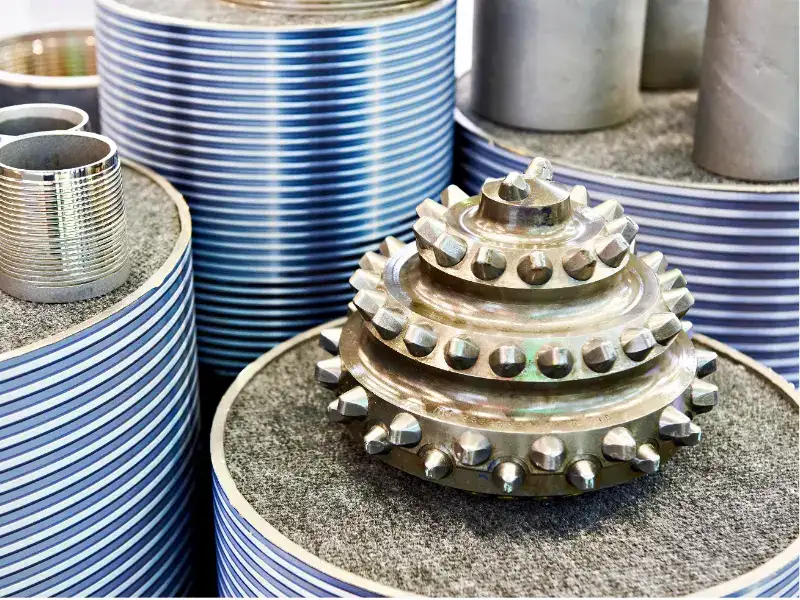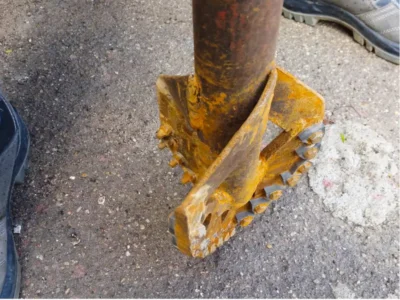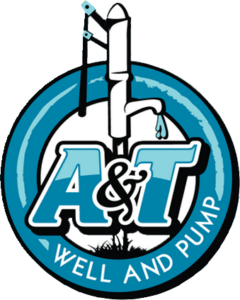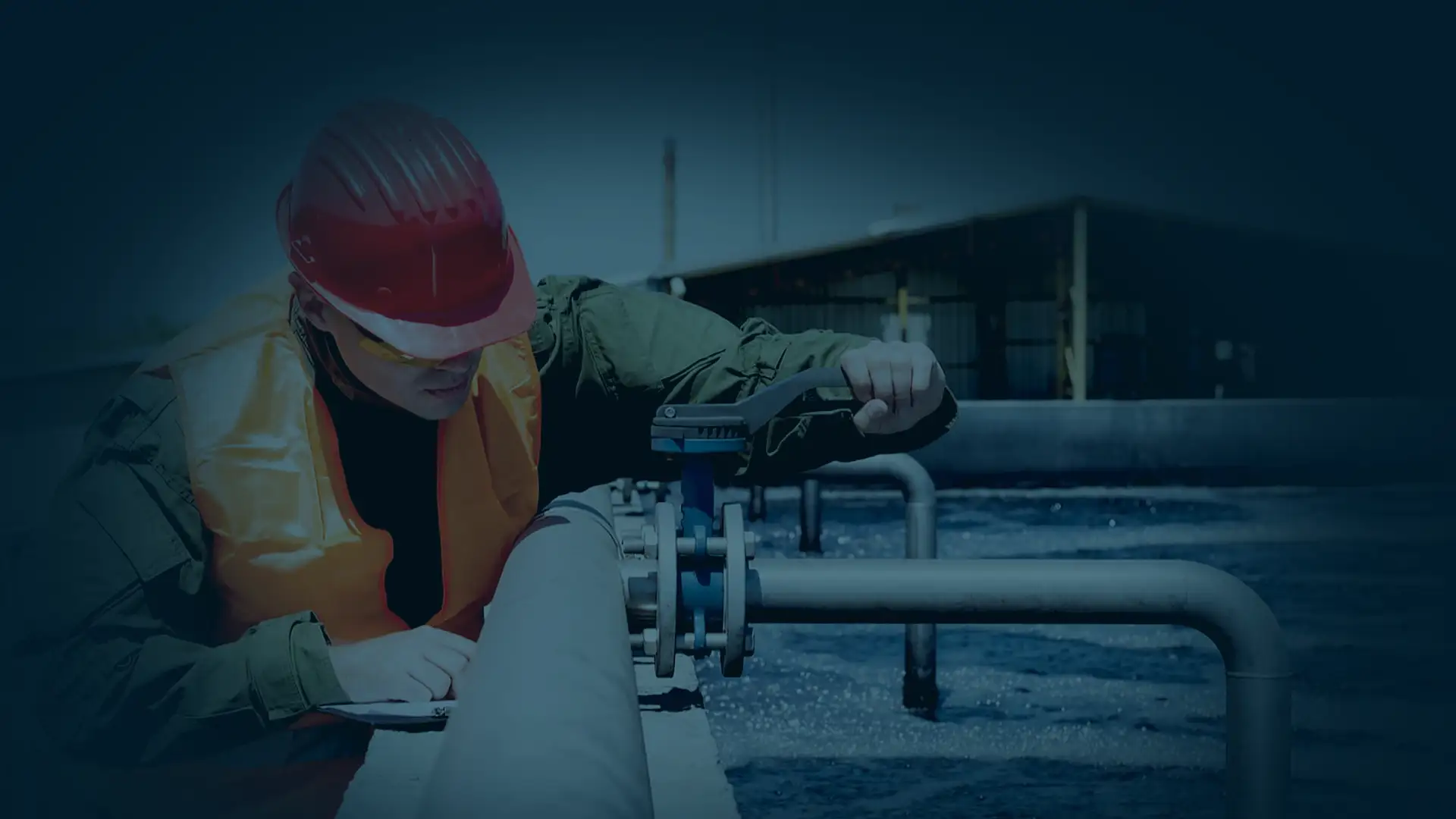An annual well inspection and maintenance helps ensure that your water isn't contaminated and reduces…
Ever wonder how a water well is drilled? The evolution of technology has revolutionized the age-old practice of well-digging. Gone are the days of hand-digging through layers of earth or driving spikes into soft ground. Today, we rely on advanced drilling techniques to access clean and abundant water sources.
Join our Raleigh water well drilling experts from A&T Well and Pump as we explore how to drill a water well from start to finish and share the essential factors for property owners to consider before tapping into the ground.
Understanding the Basics of How to Drill a Water Well
Wells are essential for providing clean and reliable water for various purposes, including drinking, irrigation, and industrial use. Drilling a water well is a complex process that involves careful planning, specialized equipment, and adherence to regulations. Understanding how to drill a water well begins with creating a borehole in the ground to access groundwater stored in natural underground reservoirs known as aquifers. However, there are many basic water well drilling factors to consider before beginning the drilling process.
Legal and Regulatory Considerations
Before drilling a water well, it's crucial to understand and comply with local regulations governing well construction and permits. Regulations may vary depending on the location and may include requirements for obtaining permits, adhering to setback distances from property lines or contamination sources, and protecting groundwater resources.
Geological Assessment
Conducting a geological assessment of the drilling site is essential to identify potential challenges and ensure successful well construction. Geological surveys help determine the depth of the water table, soil composition, presence of rock formations, and the potential for groundwater contamination. This information informs decisions regarding well location, depth, and drilling methods.
Well Drilling Equipment and Techniques
Well drilling requires specialized equipment designed to penetrate various types of soil and rock formations. Common drilling equipment includes drilling rigs, casing pipes, mud pumps, and drilling bits. The choice of drilling method depends on factors such as soil composition, desired well depth, and available budget.
Water Well Drilling Methods
Machines and hydraulic systems have made our lives easier in all industries, and water well drilling is no exception. Trucks equipped with large drilling mechanisms are today's standard for tapping the water trapped below Earth's surface. These large, powerful machines are capable of reaching water at depths of more than 1000 feet through hard rock sediment.

Different methods are used depending on how deep the well is drilled and the type of sediment covering the water source.
Here are three common water well drilling methods:
- Rotary: A rotary bit grinds through the tough sediment, using fluid to help ease the process and funnel the broken sediment to the surface.
- Percussion: Percussion drilling is similar to spiking. The drill bit pounds at the sediment, smashing through to the lower layers. This is a slower method, but it is much more capable of penetrating through tough rock.
- Auger: Typically used for soft earth, an auger is a giant drill bit similar to the type used in your household drill.
Step-by-Step Guide for How to Drill a Water Well
Understanding how to drill a water well involves undergoing a series of sequential steps designed to penetrate the earth's surface and access groundwater reservoirs. From initial site preparation to finalizing the well's completion, each step plays a crucial role in the water well drilling process.
Initial Site Assessment and Preparation
Before drilling begins, conduct a thorough assessment of the drilling site to evaluate geological conditions, water table depth, and potential obstacles. Clear the area of any debris, vegetation, or obstructions to provide adequate space for drilling equipment. Ensure safety measures are in place, including securing the site and implementing protocols to protect personnel and equipment.
Selecting the Drilling Method
Choose the most appropriate drilling method based on the geological characteristics of the well placement, desired well depth, and budget constraints. Consult with professional drilling experts to determine how to drill a water well for your specific drilling project.
Borehole Drilling
Using a drilling rig equipped with the chosen drilling method, begin drilling the borehole to the desired depth. Monitor drilling progress closely, adjusting drilling parameters as needed to accommodate changes in geological formations or drilling conditions. Periodically inspect and clean the borehole to ensure optimal drilling efficiency.
Casing Installation
A casing must be placed in the drilled hole to prevent well contamination and the collapse of the walls of the well. The casing is then secured in place with either clay or cement. Depending on whether the well is pressurized, the casing may have a pump system to draw water from the aquifer. Screens will filter out sediment as water rises to the surface.
Well Development and Testing
After casing installation, develop the well to improve water flow and remove any drilling debris or obstructions. This may involve techniques such as air surging, jetting, or chemical treatments to enhance well productivity. Conduct tests to evaluate the well's yield, water quality, and overall performance, ensuring it meets the desired specifications.
Finalization and Completion
Once the well has been developed and tested satisfactorily, finalize its completion by installing a well pump and equipping the well for water extraction. Seal the annular space between the casing and the borehole wall with grout or cement to prevent contamination. Install any necessary surface infrastructure, such as wellheads or pumping equipment, and establish proper wellhead protection measures.
Should I Drill My Own Well or Hire Professionals?
Deciding whether to drill your own well or hire professionals like A&T Well and Pump can be a significant consideration for property owners seeking access to groundwater resources. Despite knowing the steps for how to drill a water well, it's essential to weigh the advantages of hiring experienced professionals to ensure the successful and safe completion of your well drilling project.

Let's look at some reasons you should consider a Raleigh well drilling contractor rather than opting for DIY well drilling.
Expertise and Experience
One of the primary benefits of hiring professionals like A&T Well and Pump is our expertise and experience in well drilling. Professional drilling companies have trained personnel who understand the complexities of drilling techniques, geological considerations, and regulatory requirements. Our experience enables us to navigate potential challenges effectively and ensure the optimal placement and construction of your well.
Specialized Equipment and Technology
Professional drilling companies invest in specialized equipment and technology designed specifically for well drilling purposes. From advanced drilling rigs to high-quality casing materials, our professionals have access to the latest tools and technology to complete your well-drilling project efficiently and effectively. This equipment allows for precise drilling, casing installation, and well development, resulting in a well that meets industry standards and regulatory requirements.
Safety and Liability
Drilling a water well involves inherent risks that extend far beyond simply understanding the required steps for how to drill a water well. These include equipment operation hazards, geological hazards, and potential environmental impacts. Professional drilling contractors prioritize safety and adhere to strict safety protocols to protect personnel, property, and the environment. From insurance coverage and to liability for any accidents or damages that may occur during the drilling process, professional well installation provides you with peace of mind and mitigates your risk exposure.
Overall Cost-effectiveness
While hiring professionals may involve upfront costs, it can ultimately save you time, money, and hassle in the long run. Professional drilling experts have the expertise, equipment, and resources to complete your well drilling project efficiently and accurately, reducing the likelihood of costly mistakes, delays, or unnecessary well repairs.
Contact Our Raleigh Water Well Drilling Experts Today
Ready to embark on your journey to secure a reliable and sustainable water supply for your property? Look no further than A&T Well and Pump, your trusted Raleigh well drilling and trenching experts.
Don't leave your well drilling project to chance. Contact us today to schedule a consultation and discover how we can help you achieve your water supply goals. From initial site assessment to final well completion, we'll guide you every step of the way, ensuring a seamless and successful drilling experience.
Our experienced team can easily tap into your water supply. We can be reached by calling (919) 980-0981 or filling out the contact form below to get started.
Contact Form
We would love to hear from you! Please fill out this form and we will get back to you shortly.
"*" indicates required fields

